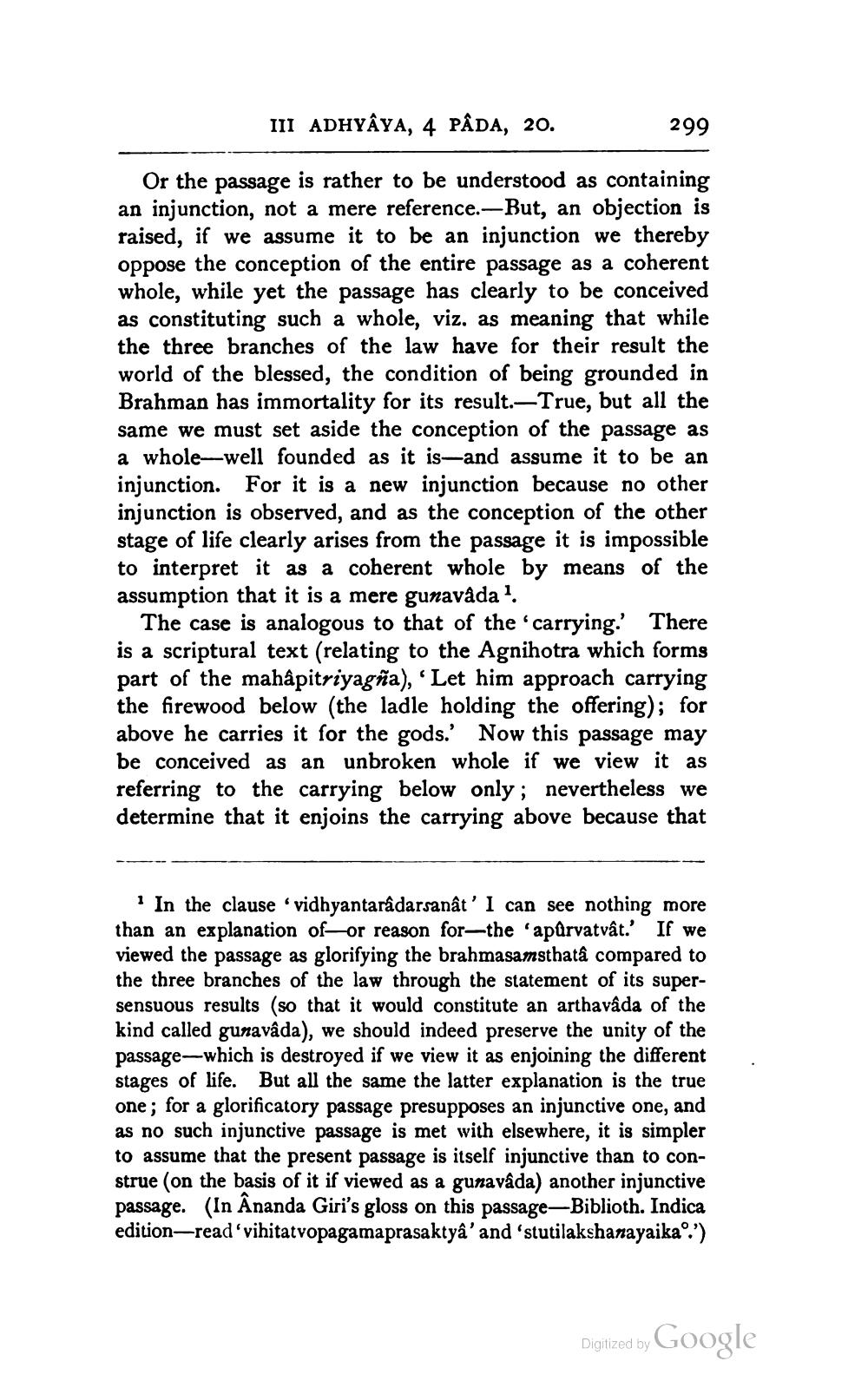________________
III ADHYAYA, 4 PÂDA, 20.
299
Or the passage is rather to be understood as containing an injunction, not a mere reference.—But, an objection is raised, if we assume it to be an injunction we thereby oppose the conception of the entire passage as a coherent whole, while yet the passage has clearly to be conceived as constituting such a whole, viz. as meaning that while the three branches of the law have for their result the world of the blessed, the condition of being grounded in Brahman has immortality for its result.—True, but all the same we must set aside the conception of the passage as a whole-well founded as it is—and assume it to be an injunction. For it is a new injunction because no other injunction is observed, and as the conception of the other stage of life clearly arises from the passage it is impossible to interpret it as a coherent whole by means of the assumption that it is a mere gunavada.
The case is analogous to that of the carrying. There is a scriptural text (relating to the Agnihotra which forms part of the mahâpitriyagña), Let him approach carrying the firewood below (the ladle holding the offering); for above he carries it for the gods.' Now this passage may be conceived as an unbroken whole if we view it as referring to the carrying below only; nevertheless we determine that it enjoins the carrying above because that
1 In the clause "vidhyantarâdarsanât' I can see nothing more than an explanation of—or reason for-the 'apůrvatvät. If we viewed the passage as glorifying the brahmasamsthatâ compared to the three branches of the law through the statement of its supersensuous results (so that it would constitute an arthavada of the kind called gunavada), we should indeed preserve the unity of the passage-which is destroyed if we view it as enjoining the different stages of life. But all the same the latter explanation is the true one; for a glorificatory passage presupposes an injunctive one, and as no such injunctive passage is met with elsewhere, it is simpler to assume that the present passage is itself injunctive than to construe (on the basis of it if viewed as a gunavada) another injunctive passage. (In Ananda Giri's gloss on this passage-Biblioth. Indica edition-read vihitatvopagamaprasaktyâ' and 'stutilakshanayaikao.')
Digitized by
Digitized by Google




